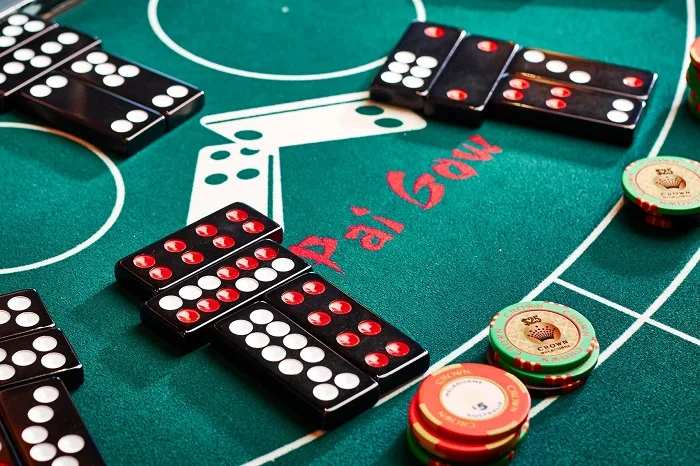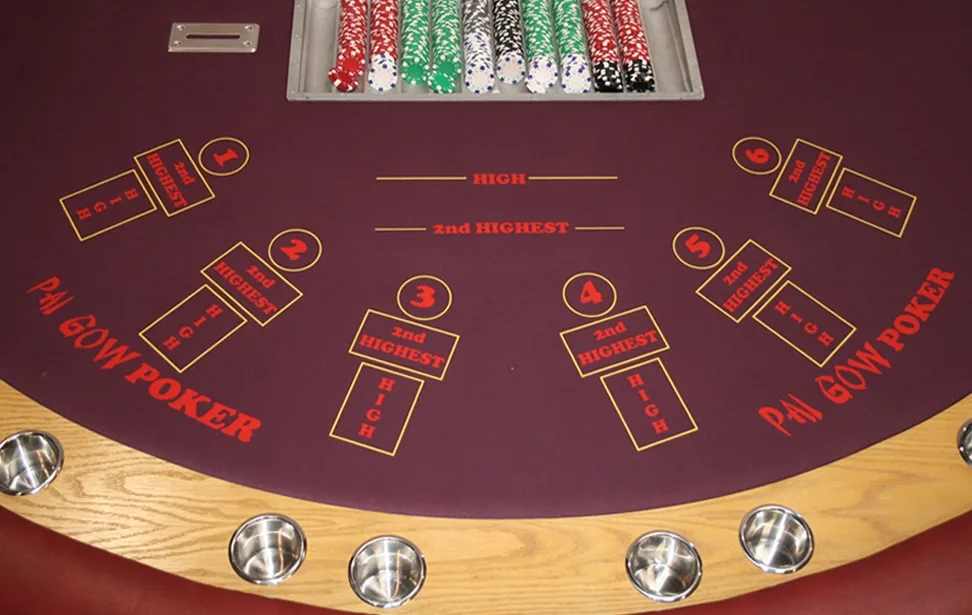
Pai Gow Poker Guide
Pai Gow Poker is a casino card game that blends elements of the ancient Chinese game of Pai Gow and American poker. It was invented in 1985 by Sam Torosian, owner of the Bell Card Club in Los Angeles. The game was created as a way to attract poker players and is played with a standard 52-card deck plus a single joker. The joker can be used as an ace or to complete a straight or flush. Pai Gow Poker combines the strategic elements of poker with the traditional Chinese game, making it a unique and engaging game for players around the world.
The game gained popularity quickly in the United States and eventually spread to casinos worldwide. Its unique gameplay, which allows for lower volatility and more frequent pushes (ties), makes it appealing to players who prefer a game with a slower pace and a chance to socialize. Today, Pai Gow Poker can be found in many casinos and is a favorite among players looking for a mix of luck and strategy.
How to Play and What Are the Rules of the Game?
In Pai Gow Poker, each player is dealt seven cards, which they must split into two hands: a five-card “high” hand and a two-card “low” hand. The five-card hand must rank higher than the two-card hand. The dealer also creates two hands, and the objective is to beat both of the dealer’s hands. The five-card hand follows traditional poker hand rankings, while the two-card hand can either be a pair or the highest single cards available.
Once the hands are set, the dealer reveals their hands, and comparisons are made. If both of the player’s hands beat the dealer’s hands, the player wins. If only one hand wins, it is a push, and the player’s bet is returned. If both of the dealer’s hands beat the player’s hands, the player loses the bet. In the event of a tie, the dealer wins. This setup leads to numerous pushes, making Pai Gow Poker a relatively low-risk game for players.
Main Differences from Other Poker Variations
Pai Gow Poker stands out from other poker variations due to its unique hand-splitting requirement. While most poker games involve creating the best possible hand from a set number of cards, Pai Gow Poker requires players to form two distinct hands. This aspect introduces an additional layer of strategy, as players must carefully consider how to split their cards to maximize their chances of winning both hands.
Another key difference is the use of a joker, which adds an extra element of surprise and flexibility to the game. The joker can significantly impact the outcome of a hand by completing straights, flushes, or acting as an ace, giving players more opportunities to create strong hands. Additionally, the slower pace and frequent pushes of Pai Gow Poker make it less volatile compared to other poker variants like Texas Hold’em or Omaha, attracting players who prefer a more relaxed gaming experience.
How Popular Is the Game?
Pai Gow Poker enjoys moderate popularity in casinos worldwide. It is particularly favored in the United States and Asia, where its blend of Western and Eastern gaming traditions appeals to a diverse range of players. The game’s social aspect, with players often chatting and enjoying a leisurely pace, contributes to its appeal. While it may not reach the same levels of popularity as Texas Hold’em or blackjack, Pai Gow Poker has carved out a niche among casino enthusiasts.
Online casinos have also contributed to the game’s popularity. Many online gambling platforms offer Pai Gow Poker, allowing players to enjoy the game from the comfort of their homes. The availability of Pai Gow Poker in both land-based and online casinos ensures that it remains accessible to a wide audience, keeping the game relevant in the ever-evolving gambling landscape.

Are There Any Tournaments for This Game?
Unlike more mainstream poker variants, Pai Gow Poker tournaments are relatively rare. Most casinos do not offer regular tournaments for the game, focusing instead on cash games. However, some special events and promotional tournaments feature Pai Gow Poker, attracting enthusiasts who enjoy the game’s unique mechanics.
These tournaments typically follow a similar structure to other poker tournaments, with players competing to win chips and advance through levels. The rarity of Pai Gow Poker tournaments adds an element of exclusivity and excitement for fans of the game, providing a unique opportunity to test their skills against other players in a competitive setting.
What Next?
The future of Pai Gow Poker looks promising, with continued interest from both players and casinos. As gambling regulations evolve and new markets open up, the game is likely to gain more exposure and attract a broader audience. Innovations in online gaming technology may also introduce new variations and features, keeping the game fresh and engaging.
For players looking to improve their Pai Gow Poker skills, numerous resources are available online. Strategy guides, tutorials, and forums provide valuable insights and tips, helping players to develop a deeper understanding of the game’s intricacies. Whether playing in a casino or online, mastering Pai Gow Poker requires practice, patience, and a strategic mindset.

